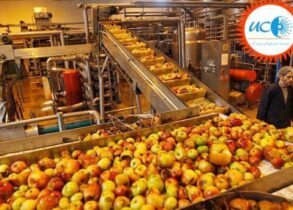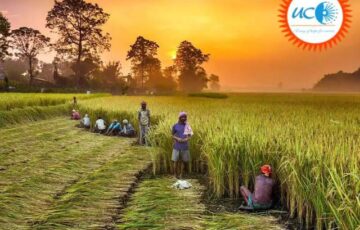Direct income transfer to farmers can improve production, increase resilience to market volatility and encourage adoption of new farming techniques. Analyze the various benefits and bottlenecks of the PM-Kisan Yojana
Approach:
- Introduce the answer with defining the PM-KISAN yojna.
- In the body of the answer, discuss various benefits of PM-KISAN, a direct income transfer scheme.
- In the next part of the body, discuss various shortcomings of the scheme.
- In the last part of the body, discuss measures to improve the PM-KISAN yojna.
- Conclude the answer by highlighting the need for holistic reforms in addition to income transfer schemes like PM-KISAN.
Pradhan Mantri Kisan Samman Nidhi (PM-KISAN) is a central sector scheme to provide income support
of ₹6,000 per year in three equal installments to all land-holding farmer families. Under PM-KISAN, farmers will be given direct income support, addressing their liquidity constraints.
PM-KISAN reflects a move towards income support from the regime of price support. Besides qualifying for the green box subsidy of WTO, PM-KISAN has the following benefits:
- Improve production: By providing income support to the farmers, PM-KISAN will enhance access to quality seeds, farm implements, farm inputs etc., improving the quality as well as quantity of farm production.
- Resilience against market volatility: Assured price support will reduce distress sales, thus providing farmers an increased resilience against market volatility. Eg: income support can enhance resilience against volatile crops like Tomatoes, Onions and Potatoes (TOP).
- Encourage adoption of new farming techniques:
a.Enhance farmers’ risks taking capacity leading to undertaking comparatively productive investments. Also, it may promote ability to undertake frugal innovations.
b.The scheme has significantly stimulated the Krishi Vigyan Kendra’s impact on the adoption of modern cultivation techniques
4.Other:
a.Distortion in cropping pattern will be minimal as PM-KISAN benefits are not linked tothe production of any crop, unlike MSPs.
b.Supplementary income support helps to prevent exploitation of farmers by moneylenders.
c.Income transfer process will lead to generation of rural demand, giving a fillip to ruraleconomy.
d.Direct income transfer will generate large scale farm/beneficiary data, aiding in datadriven policies.
Though PMKISAN has had the effect of empowering farmers, the following bottlenecks hinder its implementation:
- The basis for identification of beneficiaries is a land title. In absence of land records, it alienates landless farmers (14.3 crores, 2011 census), women farmers, tenant farmers and tribal families etc.It also leads to inclusion errors as many land title holders are not the actual cultivators.
- There have been delays in the disbursement of installments due to incorrect entries in registration, mismatched names, etc. Only 21 percent of eligible households received cash transfers through PM-KISAN.
- The fiscal cost is enormous and in the long run, the continuation of the scheme vis-a-vis its on- ground impact may not remain sustainable.
- The scheme does not provide a clear design of transfers and lacks a clear framework for grievance redressal.
- Income transfer in perpetuity cannot be substituted for institutional support systems; or for lack of investment and structural reforms in agriculture.
In order to enhance the efficacy of PM-KISAN, the following steps should be taken:
- Benefits of PM-KISAN should be extended to tenants and landless farmers, making it more inclusive. Eg: Kalia scheme of Odisha.
- Land records should be updated in order to ensure better implementation of the scheme. Eg: Telangana government updated land records before rolling out Rythu Bandhu scheme.
- The IT infrastructure in the hinterlands should be strengthened for glitch-free transfer of funds/documents etc.
- Timely disbursement of installments should be ensured to bring timely relief to the marginalized farmers.
PM-KISAN is a step towards strengthening rural economy. However, it is not a one-stop solution and the focus should also be on issues such as knee-jerk export-import policy, lack of infrastructure, and cartelization in agricultural markets.









